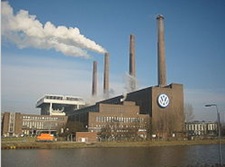|
Overseas companies may no longer find China a lucrative country to set up manufacturing units after the newly-drafted labour laws in southern China's Shenzhen special economic zone (SEZ) wer e introduced, aimed at empowering workers to collectively negotiate higher wages.  The draft law scheduled to be reviewed this month, allows workers in the manufacturing hub of Shenzhen SEZ to collectively bargain for higher salary if the wages of the majority of workers are less than half the average pay level in the city. The draft law scheduled to be reviewed this month, allows workers in the manufacturing hub of Shenzhen SEZ to collectively bargain for higher salary if the wages of the majority of workers are less than half the average pay level in the city.
The average monthly wages for factory workers in the city are about 3,900 yuan ($560), while workers at most of the manufacturing units at Shenzhen SEZ are paid between 1,100 yuan ($146) to 1,500 yuan ($220). The new labour draft comes after the Shenzhen SEZ was hit by a series of wage disputes mainly at Japanese auto parts units that saw production grinding to halt until the companies agreed to hike wages. The new laws would allow workers at Shenzhen SEZ demand wage hikes of as much as 70 per cent in order to bring their salary level to that of city workers. Labour strikes started in May in Shenzhen SEZ and in nearby cites in Guangdong province, affecting parts suppliers of Japanese carmakers like Honda and Toyota. (See: Honda plants in Foshan,China remain closed as workers strike for better wages) and (See: Honda faces strike at another Chinese plant) Taiwan's Hon Hai Precision Industry, the world's largest contract manufacturer to companies like Apple, raised workers' wages at its Shenzhen plant by 66 per cent from 1 October 2010, in a bid to prevent a spate of worker suicides the consequent rising public anger against it. Overseas firms in China are now increasingly facing labour issues with migrant workers, many from the vast countryside, demanding better pay and service conditions. After a series of copy-cat strikes at Shenzen, analysts had then said that China was rapidly turning into a developed market from an emerging market and labour costs were set to rise. They said car makers have little choice but to accept higher costs and wages if they want to remain in business in China. Shenzhen SEZ, established in 1980, comprises four of the six districts of Shenzhen City in Guangdong Province spanning an area of 493km that turned the city from a cluster of fishing villages with a population of 30,000 into a booming metropolis of 8.9 million. Shenzhen, which is often seen as a test bed for economic reform in China, had an output of $120 billion last year. Year after year, Shenzhen has delivered double-digit growth but workers' salaries have remained the same since the past decade. Shenzhen became the first area in China to be designated as a special economic zone that could accept foreign investment, under reforms brought out by the late Deng Xiaoping. Overseas companies were lured into investing in Shenzhen as it offered lower taxes, cheap power, less red tape and abundant cheap labour that would later set the place to lead the country's explosive manufacturing-based economic growth. But with social unrest due to huge differences in wages between workers at Shenzhen SEZ to those working in cities, the country saw mass strikes and Beijing for the first time remained a mute spectator. "If you are a foreign enterprise and cannot afford to pay higher wages, then get out of China," one Guangdong provincial official is reported to have said. But many overseas companies are now pondering pulling out of China as cheap labour was one of the prime reasons that made them invest in the country in the first place. Some companies like Foxconn have already decided to shift some of their manufacturing units from Shenzhen to Northern China, where labour costs are still low. Foxconn is planning to build a new plant in Zhengzhou, capital of Central China's Henan province.
|